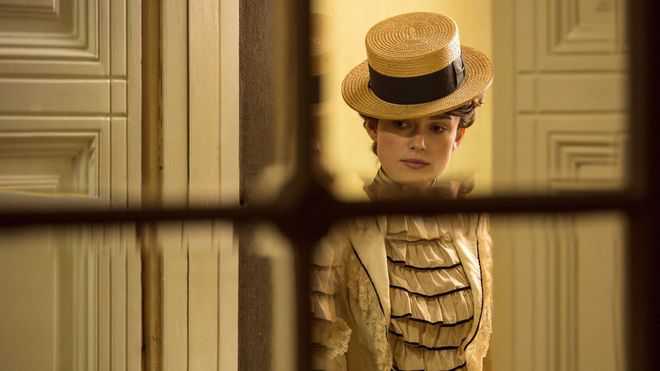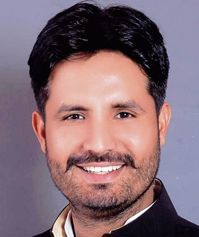
Keira Knightley in Colette
Aradhika Sharma
One hundred years ago, a woman struggled for sexual identity and the right to live life as she chose — with whom she chose. In the process, she had to battle her husband to wrest from him, her own identity as a writer and author, which he had appropriated from her. In 2018, the story of her life was made into a film, Colette, directed by Wash Westmoreland, starring Keira Knightley in the title role. The excellent film is now playing on Netflix. Incidentally, this is the third representation on the theme of husbands stealing their wives’ achievements that is currently playing on streaming services. The other two being the American biographical drama film Big Eyes (2014) which is the story of painter Margaret Keane on Netflix. And the serial Z: The Beginning of Everything, which is based on the life Zelda Fitzgerald, now playing on Amazon Prime.
This was patriarchy at its worst, where the husband or male partner would steal the woman’s work and identity, stake a claim on it and revel in the success. These are as much stories of the brilliant women as of the society that allowed the over-indulged men with an unconquerable sense of privilege to stake a claim to which was clearly not theirs. Film and TV, are however, now trying to restore the balance, removing the crown from the man’s head and placing it on the head of the person — his wife — who truly deserved it.
The bohemian author: Sidonie-Gabrielle Colette
Colette traces the journey of the country-born Sidonie-Gabrielle Colette (Keira Knightley), who gets married to the author, Willy (Dominic West). To begin with, Colette is Willy’s ghostwriter, but her work is clearly superior. However, it is published under Willy’s name. Willy locks her in up, making her write for hours, while he lives a lavish and rakish life on the earnings of her books that have become very popular, especially the radical autobiographical Claudine series, which features a young, impetuous country girl, who wants to control her own destiny. In Paris at the turn of the 20th century, 100 years ago, the Claudine series was devoured by the young women in France and sowed the seeds of Feminist revolution in France. Ironically, it was the socio-cultural influence of the novels (and the encouragement of her lesbian lover Mathilde de Morny) that set Colette on her path to independence. She seeks and gets divorce and wrests the authorship of her own books from her husband, emerging proud and free with titles such as La Vagabonde, Chéri and Gigi, for which she was nominated for Nobel Prize in Literature in 1948, under her belt.
The artist of the waifs: Margret Keene
Another such story where the artist fought for ownership to her own work and break the shackles of her husband’s oppression, is the story of the1950s novelty pop artist Margret Keene. Adapted to the film, Big Eyes, directed by Tim Burton, stars the talented Amy Adams (who won the won the Best Actress prize at the Golden Globes for her role) playing Margret Keene and Christoph Waltz playing her slimy salesman husband, Walter Keene. Margret painted a series of haunting acrylic paintings of children with big, dark round eyes — “the big-eyed waifs”, which were much sought-after paintings in the 1960s. Cashing in on their increasing popularity, Walter claimed that these were his works, and even signed the paintings himself. He mass-marketed these in the forms of posters and postcards, often posing before them with for photographs, with a brush in his hand. Margret, locked up in a room to paint and protect his secret, was compelled to conform to his lies. All the while, Walter reveled in the fame, living a decadent life on the millions the paintings earned, till, Margret finally revolted and took him to court. The film is currently playing on Netflix.
The pioneer filmmaker: Alice Guy-Blaché
An extraordinary artist who quietly faded away from public memory was Alice Guy-Blaché. Pamela B. Green’s documentary, Be Natural: The Untold Story of Alice Guy-Blaché, streaming on YouTube, tracks the path that took Alice Guy-Blaché, probably the only woman filmmaker from 1896 to 1906, into oblivion. In a career spanning two decades, she wrote, directed and produced nearly 1,000 films, working both in France and the US. Most of her films were lost but the stories of the films that did survive were ‘groundbreaking and innovative.’Alice worked as a secretary to film industry innovator Léon Gaumont, who had invented the phonoscope and biographe, a 60-mm motion picture camera. Alice borrowed the camera and made a film, which so impressed Gaumont that he made her head of production. Soon, she opened her own studio in Flushing, Queens called Solax. She married Herbert Blaché, who opened his own company that operated out of her studio. The two companies eventually merged, and Herbert persuaded Alice to have his name top-billed. Finally, he prevailed upon her to close Solax. In 1921, Alice was forced to declare bankruptcy. She divorced Herbert in 1922 but never made a film again. Her films include Cupid and the Comet (1911), What Happened to Officer Henderson (1913), What Will People Say? (1917).
In the closet
History abounds with brilliant women whose husbands gobbled the credit for their work. While there are some who were ultimately acknowledged for their contributions, many women have been unsung and unacknowledged. Many times, history itself has been unfair to women, allowing only the most resolute of them to pass through the doors of fame. Cinema, however, has recently tried to change the narrative to a more truthful and balanced one, and give the credit where it is due. Movies like Hidden Figures (2016) directed by Theodore Melfi, tell the story of the three black mathematician women (known as “West Computers”), Katherine Coleman, Dorothy Vaughn and Mary Jackson, who helped NASA beat the Soviet Union in the space race and put the first man in orbit in 1960. Finally, these women are getting the credit they deserve. While shows like Z: The Beginning of Everything that documents the life of the beautiful and brilliant Zelda Sayre Fitzgerald (played by Christina Ricci), the wife of F. Scott Fitzgerald (played by David Hoflin) who was a writer of merit but whose stories were often published under her prolific husband’s name. And while the lopsided marriages to men who stole their vital creative years were stolen cannot be retrieved, but finally, these hugely talented women are out of the closet where they were the hidden ‘ghosts’ of their husbands.



























